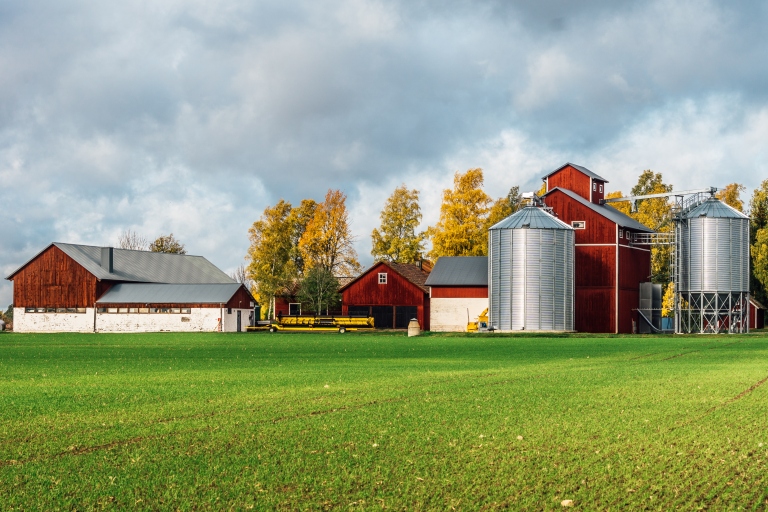If you’ve ever dreamed of owning and running your own farm, you may be wondering what it takes to even get started. The truth is that, like many paths in life, there is no perfect one-size-fits-all approach when it comes to starting a farm. Instead, it requires decent planning, research, and dedication. Which may sound hard, but the reward of having your own farm to call your own can make all the effort very much worth it in the end. Below are some of the things you’ll need in order to get started.
Land
When starting a farm, the first step is securing good quality land. There are many variables to take into consideration when doing so, such as zoning laws and regulations, soil type, and local weather conditions – all of which will contribute to cost and availability. It’s just as important to consider any infrastructure that may be needed to build or maintain the farm, such as water lines or irrigation systems, when selecting the land you plan to use. Additionally, consider that buildings like barns, silos, and coops will require proper engineering plans before any construction can occur. Ensuring all these elements come together properly is key for a successful farming operation.
Equipment
Farming requires great attention to detail and the right equipment to make sure operations run smoothly. Essential tools for planting, cultivation, harvesting, and providing care for your livestock must be acquired so you can ensure productivity and efficiency. This will include things such as tractors, plows, harvesters, and feeders. Depending on the size of your enterprise, you may need tractors or large-scale machinery too. As these items come with varying price tags, make sure you include them in your budget calculations. That way, you’ll be well prepared for early success with your new venture into farming.
Marketing Plan
Crafting an effective marketing plan is essential for success in the agricultural business; it’s important to identify and assess market trends, target customers, and develop strategies for reaching out to potential customers in an efficient manner. Gaining insights into your local market will provide valuable data that you can use to better understand who, when, and how to reach potential buyers. Knowing your customer’s preferences will give you a competitive edge, as you’ll be able to curate agricultural products or services based on their needs while building trust with the customer. Once you have all the necessary data, you should begin crafting a comprehensive marketing plan that includes budgeting, timelines, promotional channels, and expected returns on investments.
Financing
Of course, running any business requires attention to the operation’s financing, which is not as different from farming operations as you might expect. Make sure you have enough capital set aside for the initial startup costs, such as purchasing the land or equipment needed before beginning operations. However, remember ongoing costs, such as labor expenses or taxes, as you craft your budget and decide where your money is really needed in order to make the farm a success. Additionally, make sure that any loans taken out are within reason according to what kind of return on investment (also known as ROI) can be expected from them over time. Doing so will help ensure that your business remains financially viable over the long term.
When it comes to purchasing or replacing equipment, it’s always best to research as many companies and contractors as possible. Everything wears out after extended use, so knowing who to rely on when things need replacing is essential. Even when you’re just getting started, knowing where to go for the essentials, for example, feeders from a company like Western Pro Feeders, is great because it saves time in tracking a company down. Instead, you can call them up right away to get whatever you need.
Insurance
If farming were merely a hobby you did in your spare time, insurance might be something you wouldn’t normally have to think about. However, when you’re looking to make it your full-time occupation, it’s best to make sure both it and you are protected.
Similar to any other type of business, it is important to protect your farm with the right insurance policies in the event of disasters, accidents, and unforeseen complications. Depending on the type of crops or livestock you decide to raise, there may be specific types of insurance required by law, so it’s important to make sure to research what coverage is necessary and obtain those policies before beginning operations. This will help shield you from any potential liabilities or losses that could occur during the course of your business. After all, the last thing you need while trying to either get your farm off the ground or keep it in business is personal injury lawsuits or claims of property damage, thanks to your animals or equipment getting away from you.
Starting a successful farm requires a lot of careful planning and dedication in order to get it off the ground and make it work. From securing the right land to purchasing the necessary equipment and creating a marketing plan, there are many steps to consider when starting your own farm. Additionally, access and some level of understanding for an adequate financing plan is key for keeping your business afloat both as it begins and as you grow it over time. With all these elements in place, you can be well on your way to starting a successful farm.


















